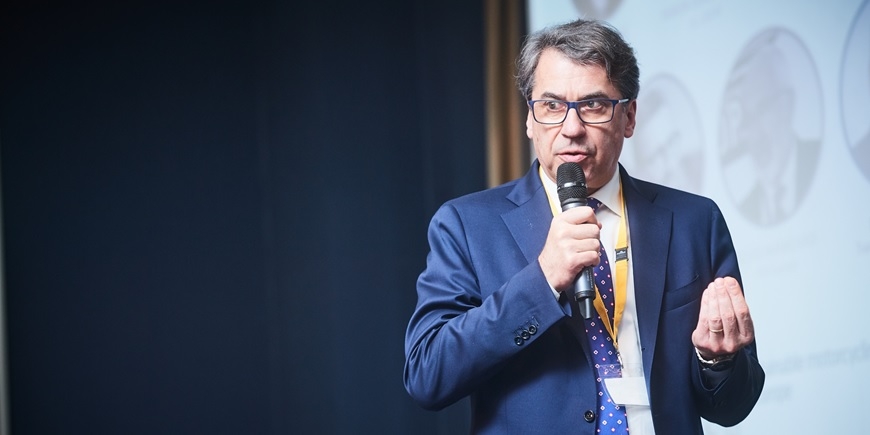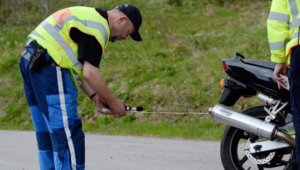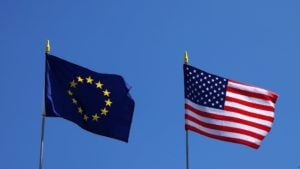
The European Association of Motorcycle Manufacturers, ACEM, hosted today its 13th annual conference in Brussels. The event, titled ‘Sustainable motorcycling in Europe, attracted more than 250 attendees from all over Europe, including businesses, representatives from the European Commission, the European Parliament, Member States, NGOs and other organisations. The discussions addressed the role of the motorcycle industry in the sustainability of transport in Europe.
Stefan Pierer, CEO of the Austrian motorcycle manufacturer KTM and current President of ACEM said: “Our industry is committed to sustainability, which we understand as a complex process related to environmental performance of vehicles, road safety and economic viability of our operations”.
“Since 1999, our sector moved from the Euro 0 to the Euro 4 standard. Carbon monoxide emissions were reduced by 91%. Nitrogen oxide and carbon emissions considered together went down by 92%. Even more, this reduction in limit values took place at the same time that new and more stringent testing procedures were introduced in European legislation”.
“In the coming months, we will start working on the implementation of the future Euro 5 environmental standard. However, manufacturing vehicles requires complex planning and we urgently need clarity from the European Commission regarding the technical content and implementation timeline of Euro 5”.
Antti Peltomäki (Finnish), Deputy Director-General of the European Commission’s Directorate General for internal market and industry (DG GROW) said: “The motorcycle industry is undergoing similar structural changes to the ones we see in other European industries. In our recent industrial policy communication we looked into how Europe’s industrial sector can become smarter, cleaner, more sustainable and, at the same time, gain a competitive edge. We must remember that road transport still represents about 25% of Europe’s greenhouse gas emissions”.
Bernd Lange (German), member of the European Parliament: “For the urban side, we may see an increase in electrification. On the leisure side, however, the picture is different. Lots of motorcyclists like the idea of having vehicles with conventional engines. Here we need to guarantee that leisure motorcycles have the same emissions limits as cars”.
In his concluding remarks, ACEM Secretary General Antonio Perlot said:
“Motorcycles are part of today’s mobility and will continue to be so in the future. They are an answer to the mobility needs of people, particularly in urban settings, as shown by the fact that today there are about 35 million mopeds and motorcycles on Europe’s roads”.
“Regarding the future Euro 5 step it is essential that policy-makers create a clear and predictable legislative framework for the industry to plan its manufacturing operations”.
The motorcycle sector, for its part, has a forward-looking vision and will continue to invest in R&D and new and advanced safety technologies. We will also work with our counterparts with in EU institutions to secure further improvements in areas such as transport emissions and road safety”.
The European motorcycle and mopeds markets in 2017
ACEM also presented the provisional statistics for the motorcycle industry in 2017. The latest figures showed that a total of 931,445 motorcycles were registered last year. This represents a decline of 9.5% compared to 2016 registration levels. The largest motorcycle markets in Europe in 2017 were: Italy (204,579 units), France (162,828 units) and Germany (140,667 motorcycles).
On the other hand, the electric motorcycle market grew from 3,496 units in 2016 to 4,121 units in 2017 (+20.4%). However, it still remains at niche levels. Only 0.45% of all motorcycles registered in Europe in 2017 were electric.
The European moped market went from 316,662 units in 2016 to 399,426 in 2017. This represented an increase of 26%. The largest markets for mopeds in Europe were: France (107,322 units), Netherlands (86,826 units), Germany (33,254 units), Poland (29,633 units) and Italy (26,030 units).
Antonio Perlot, ACEM Secretary General, said: “The slowdown in European motorcycle market is the result of the final transition to the new Euro 4 standard. A large number of Euro 3 vehicles were registered in late 2016, which explains why fewer mopeds and motorcycles are being registered in 2017. We expect the market to perform better in the coming months, thanks to the launch of the new models that will replace older pre Euro 4 vehicles. In any case, we are still below the pre-crisis levels”.
Vehicle exhibition of new technologies
During the ACEM conference several European and international brands dispayed some of their latest models and prototypes.
The members of the RESOLVE consortium (see NOTE FOR EDITORS) presented two electric prototypes of tilting four-wheelers belonging to the L2e and the L6e category. The project was funded by the EU with 6.8 million Euros from the European Horizon 2020 programme. The consortium is composed of 14 companies that are led by Italian manufacturer Piaggio. Austrian motorcycle manufacturer KTM also participates in this project.
The members of the Connected Motorcycle Consortium (CMC), the R&D platform to foster cooperation in research and development in the field of cooperative intelligent transport systems (C-ITS) exhibited some of their latest vehicles. The CMC, which is open to a wide range of organisations including motorcycle OEM, automotive companies, automotive part suppliers and research institutions, aims promote timely and comprehensive use of C-ITS systems offering the potential to improve safety for motorcyclists.
Press materials
- Conference photos (free of copyright)
- Conference documents (.ZIP 38.6MB)
- 2017 European market statistics (provisional) [XLS]
Note for editors
About ACEM. The European Association of Motorcycle Manufacturers (ACEM) represents manufacturers of mopeds, motorcycles, three-wheelers and quadricycles (L-category vehicles) in Europe. ACEM members include 17 manufacturing companies and 17 national industry associations. About 156,000 jobs depend on the motorcycle, moped, tricycle and quadricycle industry in Europe. ACEM manufacturing members, which include some of the largest multinationals in the sector, are: BMW Motorrad, Bombardier Recreational Products (BRP), Ducati Motor holding, Harley-Davidson, Honda, Kawasaki, KTM, KYMCO, MV Agusta, Peugeot Scooters, PIAGGIO, Polaris Industries, Renault, Royal Enfield, Suzuki, Triumph Motorcycles and Yamaha.
About RESOLVE. The RESOLVE consortium brings together 14 European companies including PIAGGIO (leader of the consortium), KTM, BOSCH, MARELLI and other organisations. The objective of the consortium is to develop affordable, energy efficient and comfortable electric vehicles ideal for daily urban commuters. To learn more about RESOLVE and see the full list of members please visit: http://www.resolve-project.eu
Press contact
Manuel Ordonez de Barraicua. ACEM communications manager
E. [email protected]
M. +32 496 52 65 17
Image gallery
Photos of the event available here.



